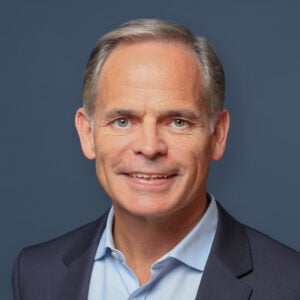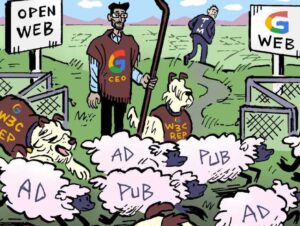Bob Lord is back in Agency Land and he’s in the mood to poke a few bears.
“Bigger is not always better,” he says on this week’s episode of AdExchanger Talks, referencing the megamerger between Omnicom and IPG.
It’s an interesting perspective for someone who worked at an agency holding company for more than a decade. Lord was COO and then global CEO of Publicis-owned digital agency Razorfish until 2013, when he left for executive roles at AOL and IBM.
But in January, Lord was appointed president of Horizon Media Holdings, the privately held parent company of indie agency Horizon Media – and he’s got some new views on what makes for a good agency/client relationship.
Consolidation can be an opportunity for large agencies from an efficiency standpoint, Lord says, but it doesn’t necessarily give brands what they want, which is more choice.
Take the billions that IPG and Publicis sunk into identity tech over the years. When you make a $2 billion investment, as IPG did with its purchase of Acxiom in 2018, or spend more than double that amount to acquire a company, as Publicis did when it bought Epsilon for $4.4 billion the following year, you need to prove these deals were worth it.
And you do that by funneling your customers toward these services.
“Are you really offering your customers the most modern data strategies and the most modern platform or AI strategies? I would say ‘No,’” Lord says. “They are saddled with those investments they have to get a return on.”
But an independent agency is less encumbered in that way.
“I’d want to partner with a company that is employing new data strategies,” Lord says, “that takes the best-of-breed tools around AI and brings them to you as a marketer.”
Also in this episode: Inside Horizon Media’s M&A plans (they’re going to be very acquisitive this year) and measuring what matters (tying media back to performance goals). Plus: Lord’s journey from an industrial engineering student in Syracuse to the world of media, tech and marketing. (In 1983, he was a shift supervisor at a GM plant in Lockport, New York, producing radiators and air-conditioning units.)
For more articles featuring Bob Lord, click here.
















